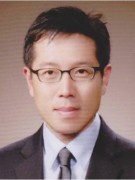
Events

Events
Title: High-temperature Degradation Mechanisms of Solid Oxide Cells
Time: 9:30-11:30, November.26, 2024
Place: F310, School of Mechanical Engineering
Host: ZHU Lei, Professor (Institute of Advanced Energy and Powertrain Technology)
Biography
Dr. Kyung Joong Yoon is currently a Principal Research Scientist at the Korea Institute of Science and Technology (KIST) and the Head of the Hydrogen Energy Materials Research Center. He also serves as an Adjunct Professor at the KIST- Yonsei University Joint Graduate School. Dr. Yoon holds a Ph.D. from Boston University. His research interests include solid oxide fuel cells (SOFC), electrochemistry, and ceramic engineering. He has published numerous papers in leading journals, including Energy & Environmental Science, Nature Energy, and Advanced Energy Materials, achieving an h-index of 40. Dr. Yoon also serves as the Executive Editor of the Korean Ceramic Society. He has received several prestigious awards, including the Award from the National Science and Technology Council (2021) and the KIST Person of the Month Award (2021, 2024).
Yonsei University Joint Graduate School. Dr. Yoon holds a Ph.D. from Boston University. His research interests include solid oxide fuel cells (SOFC), electrochemistry, and ceramic engineering. He has published numerous papers in leading journals, including Energy & Environmental Science, Nature Energy, and Advanced Energy Materials, achieving an h-index of 40. Dr. Yoon also serves as the Executive Editor of the Korean Ceramic Society. He has received several prestigious awards, including the Award from the National Science and Technology Council (2021) and the KIST Person of the Month Award (2021, 2024).
Abstract
Solid oxide cell technology represents one of the most efficient methods for energy conversion and has been the subject of extensive research over the past few decades. With significant technological progress, solid oxide fuel cells (SOFCs) have made their way into the market, steadily increasing their market share across various sectors for power generation. Additionally, solid oxide electrolysis cells (SOECs) have attracted substantial interest recently as a highly promising method for the clean production of hydrogen and various chemicals. However, the economic competitiveness of SOFCs and SOECs against conventional fossil fuel-based technologies remains a challenge, with cell and stack lifetimes being a critical factor. Operating at high temperatures, both SOFCs and SOECs are prone to various degradation phenomena, which have been a focal point in their development. SOECs operate under an even harsher environment, leading to additional degradation mechanisms beyond those observed in SOFCs. Studying the degradation mechanisms of SOFCs and SOECs is challenging, primarily due to limitations in characterization techniques. However, recent advancements in characterization techniques for high-temperature phenomena, coupled with theoretical modeling tools, have significantly enhanced our understanding. This progress has provided valuable insights into strategies to prolong the lifetime of SOFC/SOEC cells and stacks. This presentation will cover the degradation studies at KIST and discuss mitigation strategies for major degradation issues of air electrode, including Cr poisoning, electrode delamination, and Sr segregation.

Shanghai Jiao Tong University
Address: 800 Dongchuan Road, Shanghai
200240